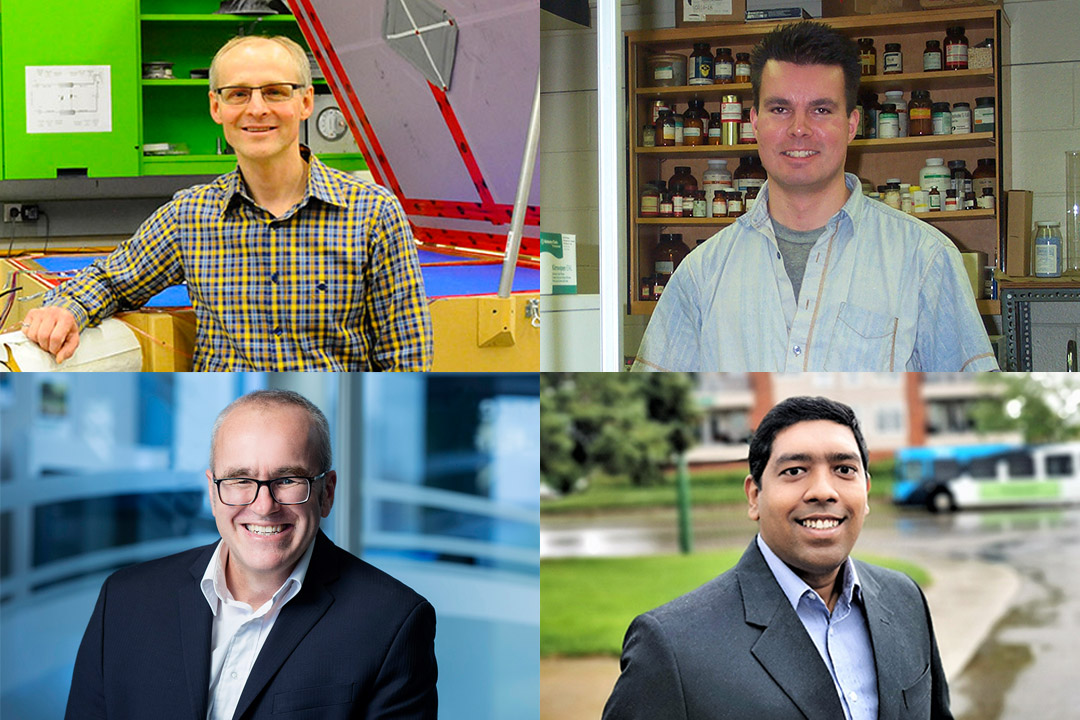
USask, City of Saskatoon join forces on practical research
SASKATOON – Four projects focused on improving life for Saskatoon residents will move forward thanks to Research Junction, an innovative partnership between the City of Saskatoon and University of Saskatchewan (USask).
Research Junction enables researcher access to city resources, data and expertise, and provides city staff with analysis and data to inform decision-making. Projects funded through the Research Junction initiative also create hands-on learning and research opportunities for USask students and post-doctoral fellows, helping them prepare for future careers.
“USask is committed to providing research the world needs, and that starts at home,” said USask President Peter Stoicheff, noting the university and the City of Saskatoon recently signed a joint commitment to tackle climate change and improve sustainability practices. “These Research Junction projects offer practical means for both protecting the environment and improving the daily lives of residents. Our researchers are committed to finding local solutions, with global impact.”
The newly announced projects will be carried out between now and early 2023.
“It’s exciting to see the city and the university team up on these projects,” said City of Saskatoon Mayor Charlie Clark. “This helps the city tap into the innovation and expertise of the university in addressing fundamental issues shaping our city: overcoming barriers to employment, responsive transit, energy sources for heating and cooling, and how to protect our water treatment plants. The answers will help ensure we are a more resilient and inclusive city into the future.”
The four new projects, with combined funding of $100,000 include:
Addressing social issues, saving taxpayer dollars
Total funding: $30,000
Can social enterprises help address social issues like unemployment and crime while saving government money? Researchers will look at the impact of Build Up Saskatoon, which provides long-term employment, along with peer, mentor, and cultural support, for people who face multiple barriers to employment.
USask researcher: Dr. Marc-Andre Pigeon (PhD) - Johnson Shoyama Graduate School of Public Policy
City lead: Tenille Thomson, Community Development DivisionShaping a more responsive transit system
Total funding: $20,000
Researchers are working to design fast, reliable, and explainable algorithms that will take Saskatoon Transit data analysis time from hours to milliseconds, visualize hidden patterns, and predict ridership changes by bridging the gap between riders and planners. This will allow the city and transit planners to make data-driven decisions, optimize service at different times and better handle emergencies such as road closures and the COVID-19 pandemic.
USask researcher: Dr. Debajyoti Mondal (PhD), Computer Science, College of Arts and Science
City lead: Jim McDonald, Saskatoon TransitAnalyzing the feasibility of heat pumps
Total funding: $30,000
This project will analyze the feasibility of heat pumps for heating and cooling buildings in Saskatoon by comparing performance, greenhouse gas (GHG) emissions, life cycle cost, and payback period compared with conventional natural gas systems. This research is a first step in the long-term partnership which aims to reduce energy consumption, cost and GHG emissions from buildings.
USask researcher: Dr. Carey Simonson (PhD) and Dr. Gurubalan Annadurai (PhD) – College of Engineering
City lead: Kathryn Theede, Sustainability Department, Utilities and Environmental DivisionProtecting water from contamination
Total funding: $20,000
Water treatment plants that rely on river water are susceptible to potentially disastrous and long-lasting disruptions from petrochemical spills. The risk of an incident is significant because spills from trucks, pipes, or trains can travel long distances downstream and a small amount of contaminant can upset some components of the treatment process. The research project will examine the susceptibility of key aspects of the Saskatoon water treatment process to source petrochemical contamination and study the effectiveness of potential mitigation techniques.
USask researcher: Dr. Lee Wilson (PhD) - Chemistry – College of Arts and Science
City lead: Sunday Ibok, Saskatoon Water Department, Utilities and Environment Division
-30-
For more information, contact:
Victoria Dinh
USask Media Relations
306-966-5487
victoria.dinh@usask.ca
City of Saskatoon Media Relations
mediarelations@saskatoon.ca

